After walking across the stage on August 15, 2022, Yen Nguyen became the first official graduate of the DNP Advanced Practice/PhD Dual Degree Program.
Launched in 2017, the program combines the competencies and practice opportunities of the DNP degree with the clinical research and scientific rigor of the PhD. The program was the first in the country where students could receive both degrees simultaneously from one school.
Read on to learn more about Yen’s journey through the program.
Why did you want to do the DNP/PhD program?
I had just returned from two years in the Peace Corps working with young women in remote places. I knew I wanted to be a champion for women and young girls by delivering safe and high-quality care, especially to those who have historically not had access because of gender, race/ethnicity, cultural, social or economic background. I believed this was achievable by translating research into evidence-based care. I thought the dual-degree program would best serve my goals—to generate rigorous, high-quality research that could be immediately translated into clinical practice.
What were your initial reactions to the program?
Initially I felt like a deer caught in headlights. It was a brand new program so I came in knowing there might be some road bumps. Sure enough, the journey was tough and bumpy. But Hopkins, true to its reputation, stepped up and made the changes that needed to be made in real time. I met some great people, faculty and peers alike, during the last five years. They all wanted the DNP/PhD students to succeed and they supported us as much as possible.
Did you ever have imposter syndrome?
24/7! It was extremely difficult to shake off the feeling that I was not good enough, but that’s where having frank conversations with other students helped tremendously. We were all going through the same thing, and when we spoke up, it made me – and everyone – feel less alone.
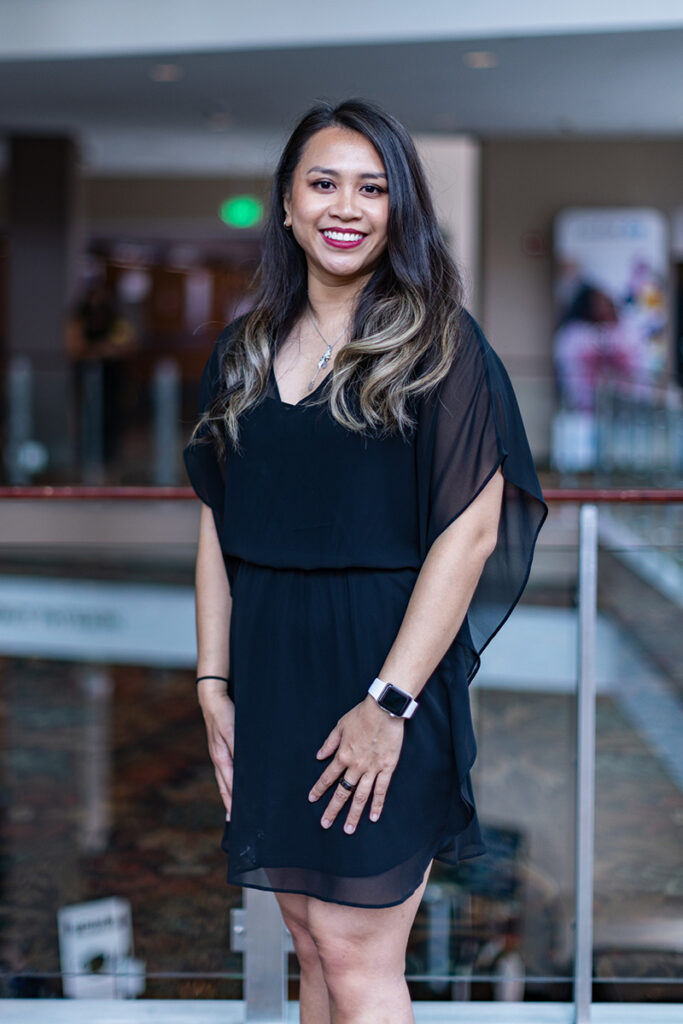
How did you get through the challenging times?
I definitely felt challenged in this program, and often times wondered how I would get through it. When I felt defeated, I thought back to my reason for being here. I reread my admission essay multiple times to remind myself that I had a personal commitment and aspiration to care for young girls and women, a reason to keep swimming. My close friends were my number one supporters. And of course, the girls in my cohort – I don’t know how we would have gotten through this without each other!
Tell me about your research project?
My research focused on family planning for women of reproductive age, initiating multidrug resistant tuberculosis (MDR-TB) treatment in South Africa. The majority of these women also had HIV.
MDR-TB and HIV both carry significant risk for poor maternal and infant health outcomes. My research helped to better understand how integrated family planning services can reduce unintended or uninformed pregnancies and complexities of care for women during MDR-TB treatment in South Africa.
When I first started this program in 2017, there was one non-research article that discussed the importance of family planning for women with MDR-TB and the health risks they faced. I researched, developed, and translated an evidence-informed, pragmatic intervention to ensure women with high-risk health conditions could access appropriate, high-quality family planning services, thereby reducing poor reproductive and overall health outcomes. After five years, I am pleased to say that this space now has more attention regarding family planning, both in research on this topic and in the translation of that research into evidence-based clinical care.
What advice can you offer future students?
Make sure you have a group of supporters in your corner. Establish boundaries for yourself and never be afraid to ask for help. Imposter syndrome stopped me a lot of times from speaking up in the beginning, but once I did, I found out that many other students had the same problems and that there was a lot of support from unexpected sources! You are your number one advocate. If none of those things 100% help, make sure you have a great therapist! Shout out to mental health care and destigmatizing it in academia.
What do you plan to do now?
I’m currently considering my job options. I plan to use both my DNP and PhD degrees. I intend to work as a family nurse practitioner and teaching in a faculty position as well. I know global health is my calling, so I will likely head toward a role in a global space after gaining more experience.
What three words would you use to describe the Johns Hopkins School of Nursing?
Unforgettable, rigorous, and caring.
Learn more about the program and how to apply.
Read more:
- DNP/PhD Pioneer a Force of Nurture
- Tips to Be an Efficient, Effective Applicant
- How to Transition from DNP Program Applicant to Current Student
- From Implementation to Discovery
ABOUT THE AUTHOR: DANIELLE KRESS
Danielle is Senior Public Relations Manager for the Johns Hopkins School of Nursing. She produces the On the Pulse podcast and connects journalists with the school of nursing community.
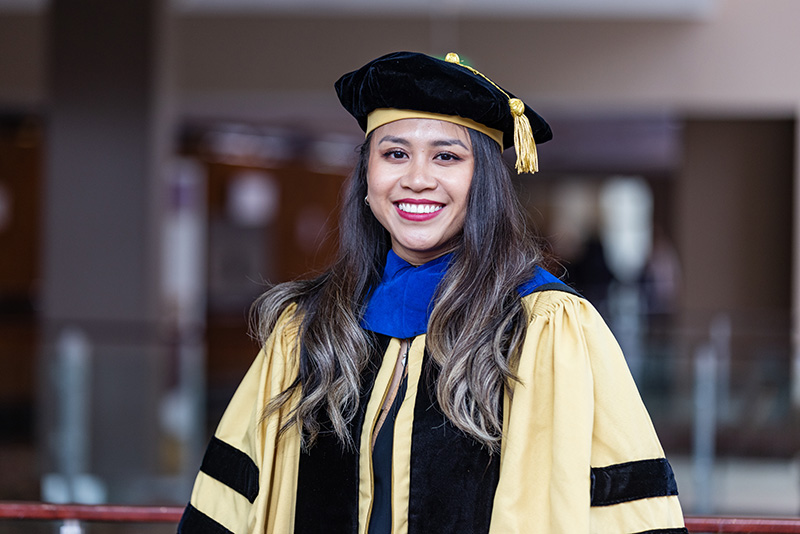
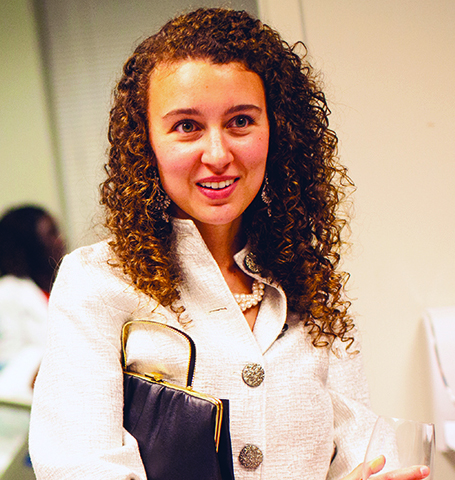
 Forging Policy: How Can Doulas Improve Black Maternal Health?
Forging Policy: How Can Doulas Improve Black Maternal Health? The Returned Peace Corps Volunteer to Nurse Pipeline
The Returned Peace Corps Volunteer to Nurse Pipeline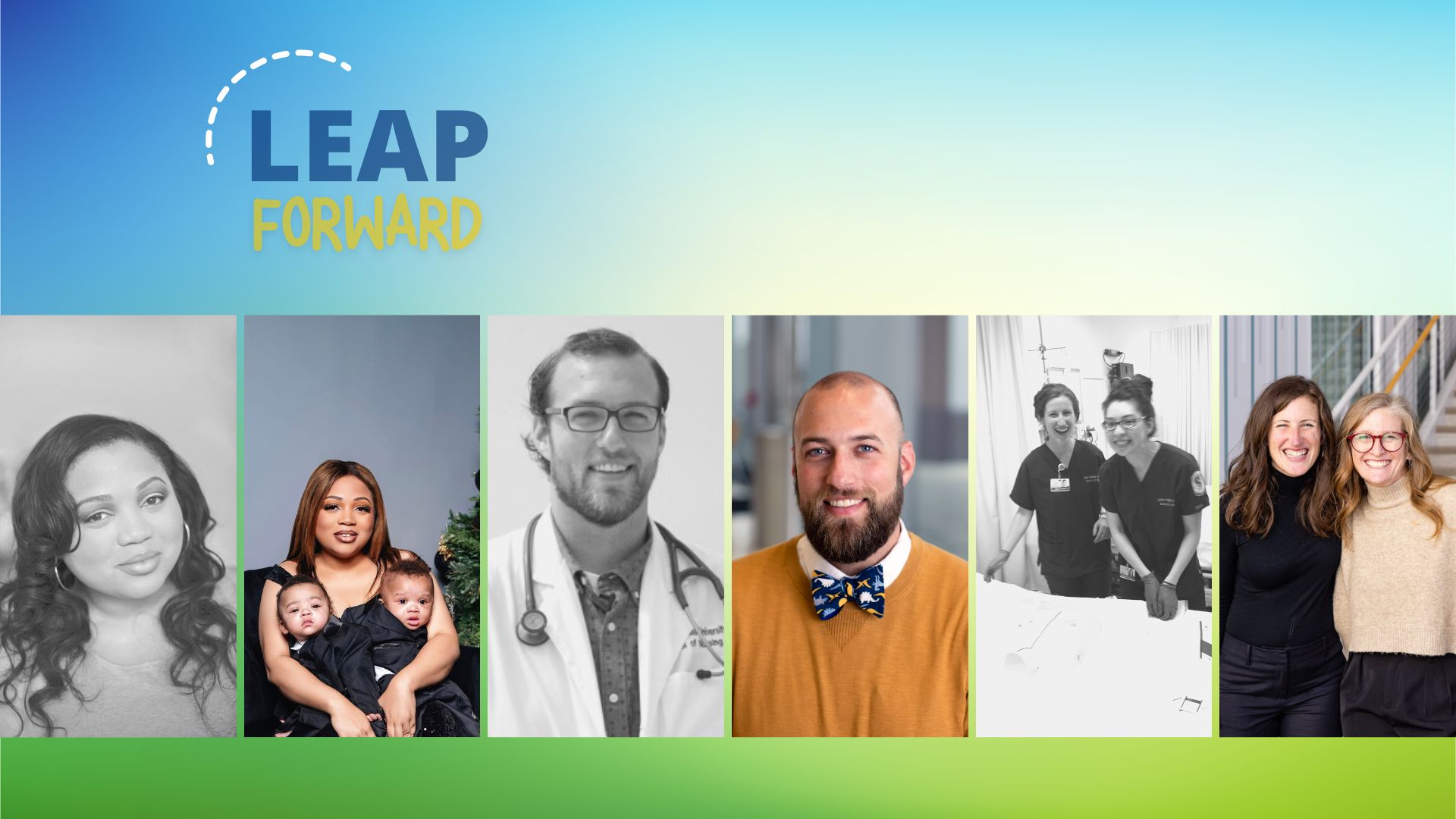 Leap Forward: Where are They Now
Leap Forward: Where are They Now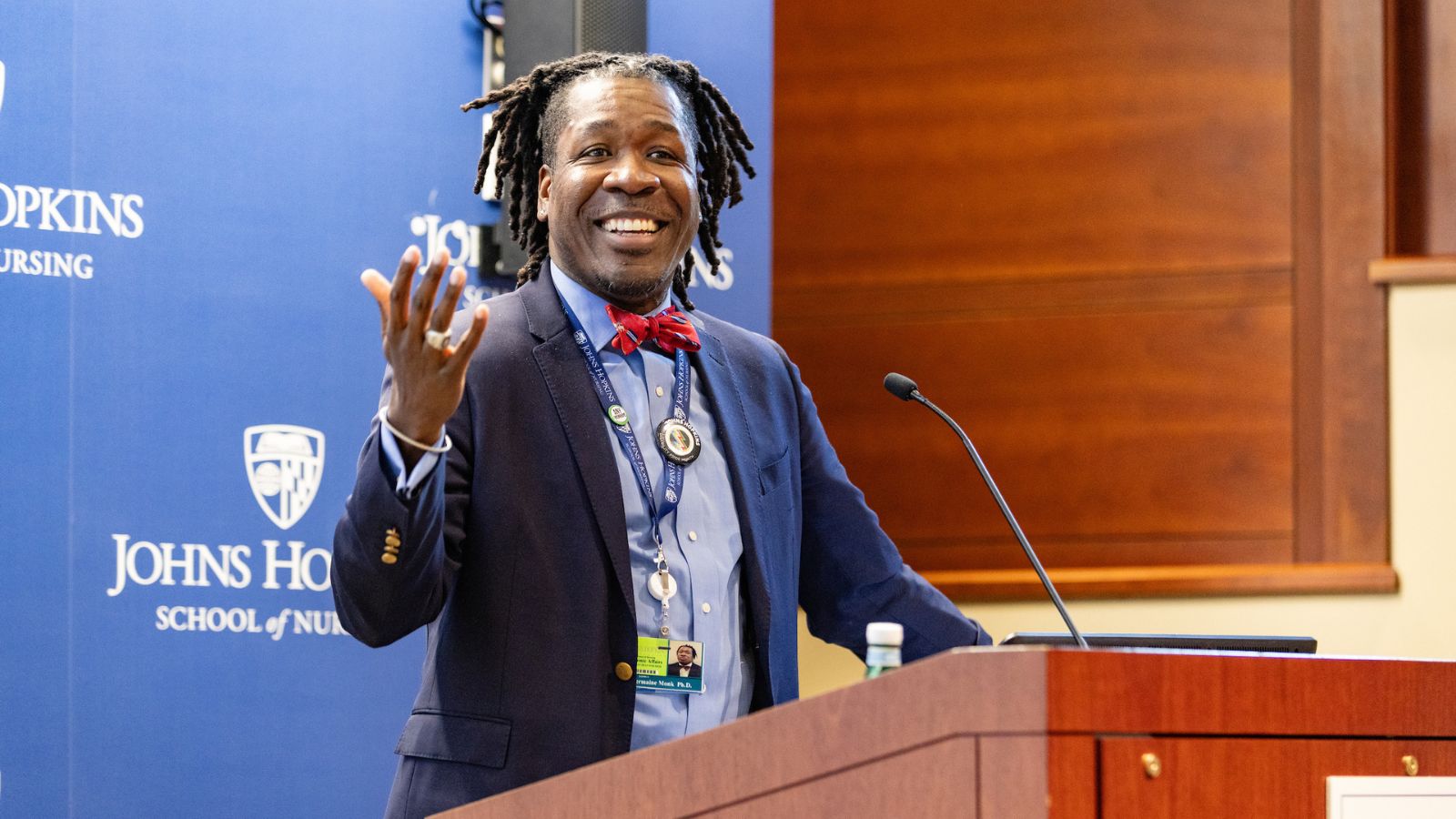 Forging Policy: Associate Dean Jermaine Monk and Education After Affirmative Action
Forging Policy: Associate Dean Jermaine Monk and Education After Affirmative Action My First Teachers in Nursing School Weren’t Nurses
My First Teachers in Nursing School Weren’t Nurses






